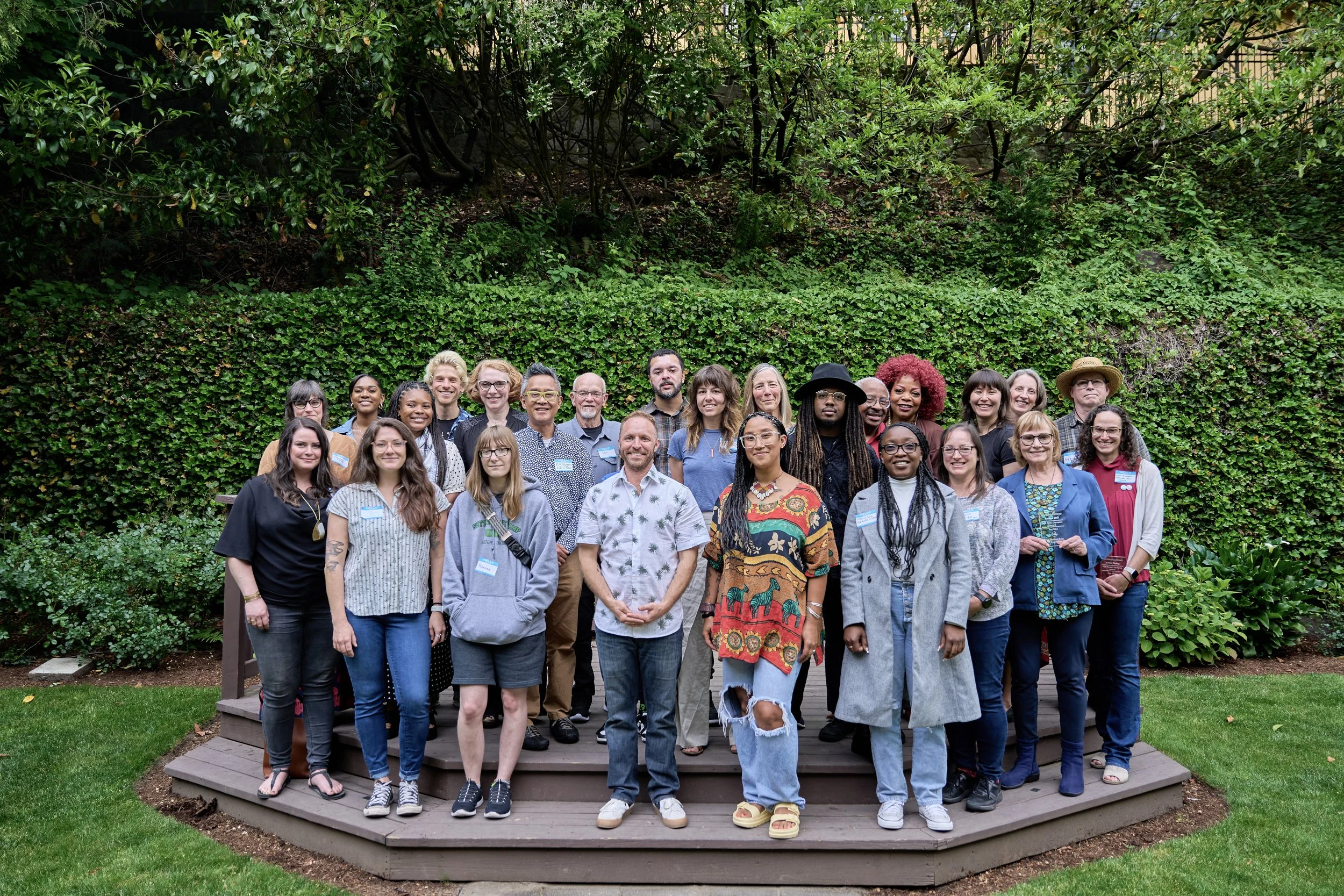Header photo courtesy Portland Parks & Recreation
Wendy Thompson, MFA, is a freelance writer and education specialist. As an integrated arts educator, she taught at the Vancouver School of Arts and Academics in Washington State and worked with Saturday Academy and The Right Brain Initiative. She specializes in STEM to STEAM curriculum design, creating fully integrated units like Fern Frenzy, River Voices, and Story of the Snag. Her award winning poetry has been published in a variety of local and regional anthologies and she has also published articles in Teaching Tolerance, Science & Children, and Chrysalis: Journal of Transformative Language Arts.
Environmental education in the outdoors is a stepping stone to a healthy and well-educated society. It allows people of all ages to explore their curiosity and consider their place in the world. Our connectedness and diversity rise into great relief surrounded by layers of ancient soil and biota. Children’s self-esteem improves when they direct their own learning and challenge themselves both cognitively and physically. A student in a North American Association for Environmental Education video said it best, “In the classroom you’re just sitting at your desk learning about it; out here you actually get to go out and do it.”
With the many benefits of outside environmental education, it is no wonder that Portland enjoys many outlets for environmental education from pre-k through adulthood. Portland Parks & Recreation alone offers at least 17 different programs to Portlanders ages 3-22, helping over 16,000 children each year learn in our public parks. I interviewed a local educator and artist, Wendy Thompson of Wahkeena Arts and of Springwater Studio, about her experiences in environmental education in Portland. Wendy has taught using hands-on and placed-based experiential learning techniques in the Metro region for over 25 years.
Do you think urban parks are an important resource for educators?
Whether as expansive as Forest Park or as minuscule as Mill Ends Park, urban parks are a vital resource for educators. Many classroom teachers, particularly on the elementary end, are generalists who are required to teach in a variety of subjects with minimal time for planning. The parks and related services not only provide opportunities for hands-on, experiential learning, but an abundance of professional development resources, training, and even lesson plans for a myriad of subject area connections.
What do you think children get in a natural setting that they can't get in a classroom?
Why limit a child's experience of a Douglas fir to a text book photograph and facts when she can go to a local park and discover how many of her friends it takes to hug the trunk. She can find the mouse tail in the pine cone and write a legend, compare and contrast the needles to neighboring pine in her science journal, or peer under the bark with her magnifying lens and discover an entire micro community. She can make suppositions about growth patterns and life cycles, adaptations, and interdependence all while breathing in the health benefits of time outdoors. Research demonstrates the value of experiential, contextual, inquiry-based, integrated learning. In a natural park setting, children get the added benefit of full-on 3-D, sensory stimulation so lacking in our electronic 2-D classrooms.
What is one of your favorite memories of combining education and public parks or nature areas?
Through Saturday Academy, I was able to take a group of César Chávez elementary students to their neighborhood Columbia Park to Geocache. Not only did they learn about GPS coordinates, longitude/latitude, following directions, and ethics of geocache, they also learned about respect for their park. How could they find the cache deep under an azalea bush without hurting one single limb or leaving one footprint hint for the next geocacher? Some of the hints for the caches introduced them to botanical names and the students were sprinting from tree to tree, crawling in the grass, grinning throughout their learning experience. These inner city kids, who may never have explored the park beyond the playground or pool, were excited to show their friends the secret mysteries of the park, both inanimate and living.
* * *
Let’s give thanks for the wonderful public parks and the teachers that help us unlock the secrets that unfold daily in nature. The Portland Parks Foundation understands that environmental education is best conducted in nature, and we’re committed to supporting our 200+ natural classrooms across Portland.






